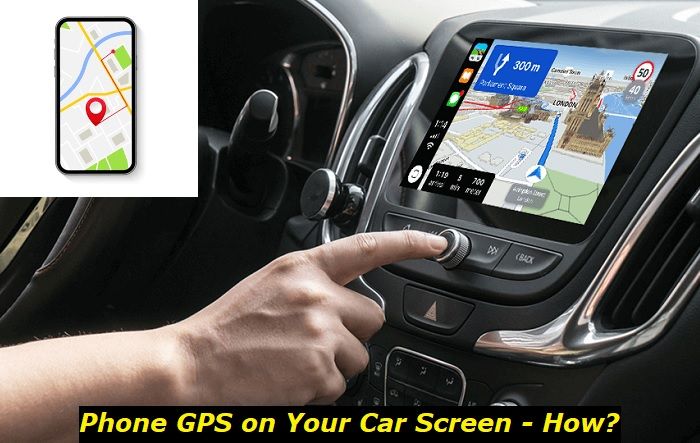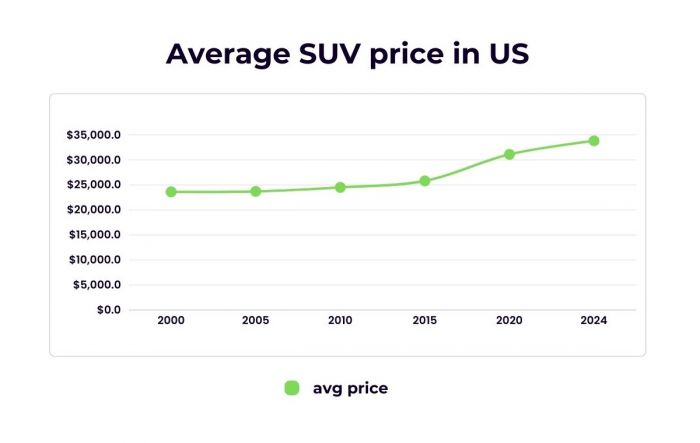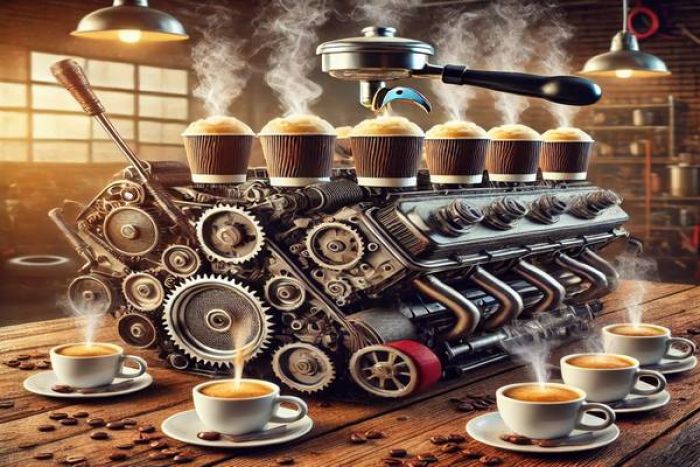It's always frustrating when your car won't do its main job - accelerate. It's even more frustrating when your car refuses to move and you witness the check engine light shining threateningly on the dashboard. What's wrong with your car when it doesn't accelerate and the check engine light is on? Do you just need minor repairs? Is the engine totally gone?
Check engine light highlights
- Common reasons:vast choice of different problems
- How to fix:read the codes to narrow down the issue
- Possible consequences:depends on the actual culprit
- Priority level:Medium
- Can you drive?Carefully
- DIY repair:Impossible
- Repair price range:$150-$1,000

Why Is the Check Engine Light On?
The check engine light is a part of your car's warning system that alerts you when a part of the car needs attention and possible repair. The light comes on when the car's Engine Control Module (ECM) detects that there is something wrong with the engine.
In most cases when the check engine light comes on, you'll still be able to drive in your car. However, in some cases, you might find that the check engine light comes with reduced handling, or even an inability to accelerate the car at all.
Why Isn't the Car Accelerating?
The main purpose of your car is to accelerate and move forward. If it doesn't do that, then that usually points to a problem in the engine's ability to generate or transmit power to the wheels. This type of problem can be caused by an issue or malfunction in any part of one of the following three systems.
- The fuel system: This is the system that stores fuel in the car and delivers it to the engine for combustion. If there is a blockage in the system, or it fails to deliver fuel to the engine, then the engine will not be able to generate sufficient power, and the car won't accelerate. In some cases, the engine won't even turn on.
- The engine: The engine is the part of the car that burns fuel and converts chemical energy to rotational energy. The engine requires several different parts to work efficiently and simultaneously to do its job. A problem with one of these components can cause the entire engine to fail, possibly resulting in little or no power being generated. This leaves the car unable to accelerate.
- The transmission: A car's transmission transfers power from the engine to the wheels to accelerate the car. If the transmission is damaged in a way that interrupts the transfer of power, then the wheels won't receive power from the engine, and the car won't move.
Let's take a look in detail at the components in these systems that can cause your car not to accelerate.
1) Faulty Oxygen Sensor
One of the most common causes of weak acceleration in a car is as a result of a malfunctioning or faulty oxygen sensor. The oxygen sensor measures the amount of oxygen in the exhaust gas after combustion. The ECM uses this data to determine how much fuel the engine needs, and adjusts the car's fuel mixture accordingly.
If the oxygen sensor isn't working correctly, it could cause the engine to receive too little fuel. This will cause the engine to run poorly, which will result in weak acceleration or even a complete loss of acceleration.
A faulty oxygen sensor will also trigger the check engine light, letting you know that there is an issue with the engine that needs to be addressed.
2) Clogged Air Filter
Another common cause of weak or no acceleration in a car is a clogged air filter. The air filter prevents dirt and debris from entering the engine through the air intake. With time, the air filter will eventually become clogged and blocked with debris.
When the air filter is clogged, the engine won't receive the air it needs to burn fuel efficiently. This leads to a loss in performance that can eventually result in a loss of acceleration.
A clogged air filter is easily fixed by replacing the old filter with a new clean one.
3) Fuel System Issues
A loss of acceleration and a check engine light could be caused by issues with the car's fuel system. There are three main components of the fuel system, and a malfunction or blockage in any of these parts will prevent fuel from reaching the engine for combustion.
The main components of the fuel system are:
- The fuel pump: The fuel pump could be clogged by debris from the tank, or it could malfunction as a result of corrosion or a burnt-out pump motor. When this happens, the fuel pump will not generate the pressure needed to move the fuel to the engine.
- The fuel filter: The fuel filter prevents dirt and debris from the fuel from reaching the engine. Over time, the fuel filter can become clogged with dirt, preventing fuel from moving from the fuel tank through the rest of the fuel system.
- The fuel injectors: The fuel injectors are responsible for delivering fuel from the fuel system into the cylinders. Fuel injectors are sensitive to debris in the fuel, and a small blockage could result in a fuel injector being unable to send fuel into the cylinders. If more than one cylinder is blocked, it can cause a drastic loss of power and an inability to accelerate.
A problem with any of these parts will need to be solved by clearing the blockage where possible or replacing the affected part.
4) Transmission Problems
Another common cause of lack of acceleration could be problems with the car's transmission. Transmission issues like low transmission fluid, slipping gears, or a faulty solenoid, can cause a loss in power and lack of acceleration.
If you suspect that the problem is a faulty transmission, it's best to take your car to a mechanic for inspection.
5) Faulty Throttle Position Sensor
The throttle position sensor detects the position of the accelerator pedal to determine the throttle input from the driver.
Problems with the sensor can prevent the engine from receiving the right signals to accelerate properly.
When this happens, even a fully depressed accelerator pedal might not be noticed by the ECM, causing the car to have no acceleration response to pressing down the accelerator.
6) Faulty Mass Airflow Sensor
The mass airflow sensor measures the amount of air that flows into the engine. The ECM uses this data to determine the amount of fuel to add to the combustion chamber. If the mass airflow sensor is faulty, it can result in the engine receiving too little oil, causing a drop in power and acceleration.
7) Engine Problems
Finally, if your car won't accelerate and the check engine light is on, the problem may be related to the engine itself. If some of the sparkplugs are failing, the engine will run poorly with acceleration. A worn engine belt could cause similar symptoms as the engine will run out of sync.
These issues are plenty and difficult to diagnose, so it is best to get a mechanic to examine the engine and fix the problem.
What to Do When Your Car Won't Accelerate and the Check Engine Light is On
When your car won't accelerate and the check engine light is on, you may be stuck wondering what to do to get your car working again. Fortunately, all you need to do is follow these simple steps to be on your way to resolving the problem and accelerating again.
- Scan For Trouble Codes
The first thing to do when dealing with this problem is to scan your car for trouble codes. You can do this with an OBD2 scanner, or you can look for an auto store that offers free scans.
These codes can help pinpoint the issue and give you an idea of what needs to be fixed.
- Inspect the Affected Part
Once you have identified the issue, inspect the affected part. Depending on the part, you may need to look for dirt, corrosion, or physical damage.
- Make Necessary Repairs
Once you've identified the affected part, you can make the necessary repairs. This could involve cleaning, repairing, or replacing the affected part.
- Contact a Mechanic or Dealership
If you can't locate the cause of the problem yourself, or the issue is beyond your ability to repair, then you'll need to contact a certified dealership or mechanic. They have the expertise necessary to diagnose the cause of the problem in your car, as well as fix it.
Conclusion
A car that won't accelerate and shows the check engine light can be caused by a variety of issues. Some common causes of the issue are a malfunctioning oxygen sensor, clogged air filter, fuel system issues, or engine problems.
Some of these issues are easily addressed, while others will require a professional mechanic.
About the authors
The CarAraC research team is composed of seasoned auto mechanics and automotive industry professionals, including individuals with advanced degrees and certifications in their field. Our team members boast prestigious credentials, reflecting their extensive knowledge and skills. These qualifications include: IMI: Institute of the Motor Industry, ASE-Certified Master Automobile Technicians; Coventry University, Graduate of MA in Automotive Journalism; Politecnico di Torino, Italy, MS Automotive Engineering; Ss. Cyril and Methodius University in Skopje, Mechanical University in Skopje; TOC Automotive College; DHA Suffa University, Department of Mechanical Engineering






Add comment